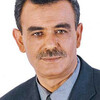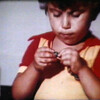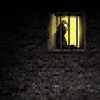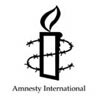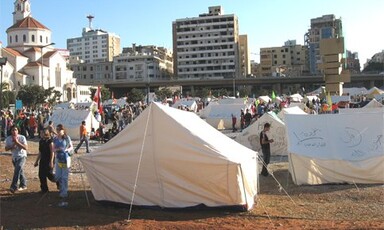
Photostory: Solidarity in Solidere
Beirut, Lebanon 18 February 2007
In recent weeks and months Lebanon has faced major political upheaval, marked by massive street demonstrations, international political intervention and a national general strike. Lebanon’s political opposition maintains an ongoing open-air demonstration in central Beirut, which commenced on December 1st, 2006, fueled by popular discontent toward the current national government. Vivid political debate in Lebanon and throughout the Lebanese Diaspora presents challenging political questions toward both the current government and political opposition regarding growing sectarian strife across an increasingly divided nation. Read more about Photostory: Solidarity in Solidere

